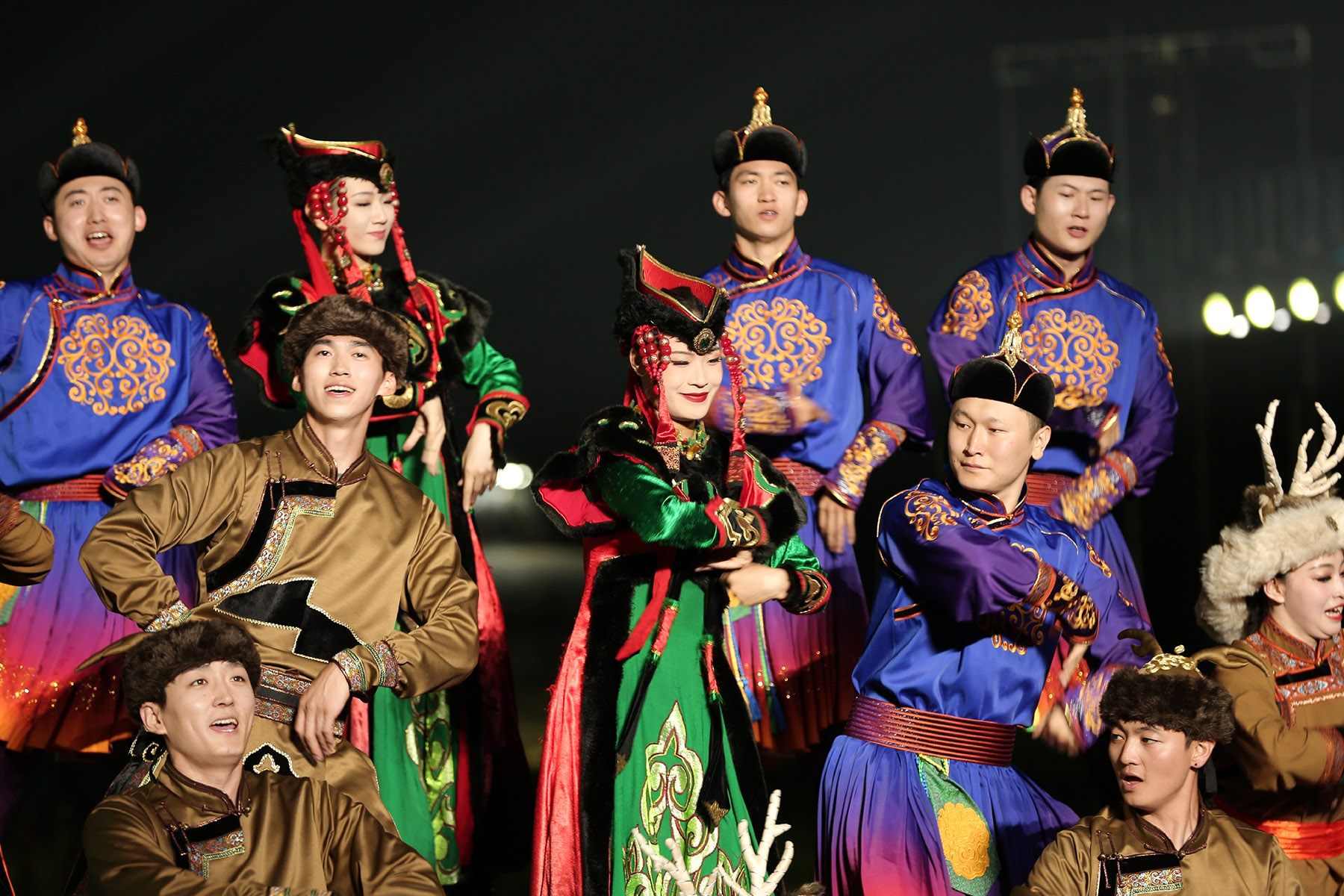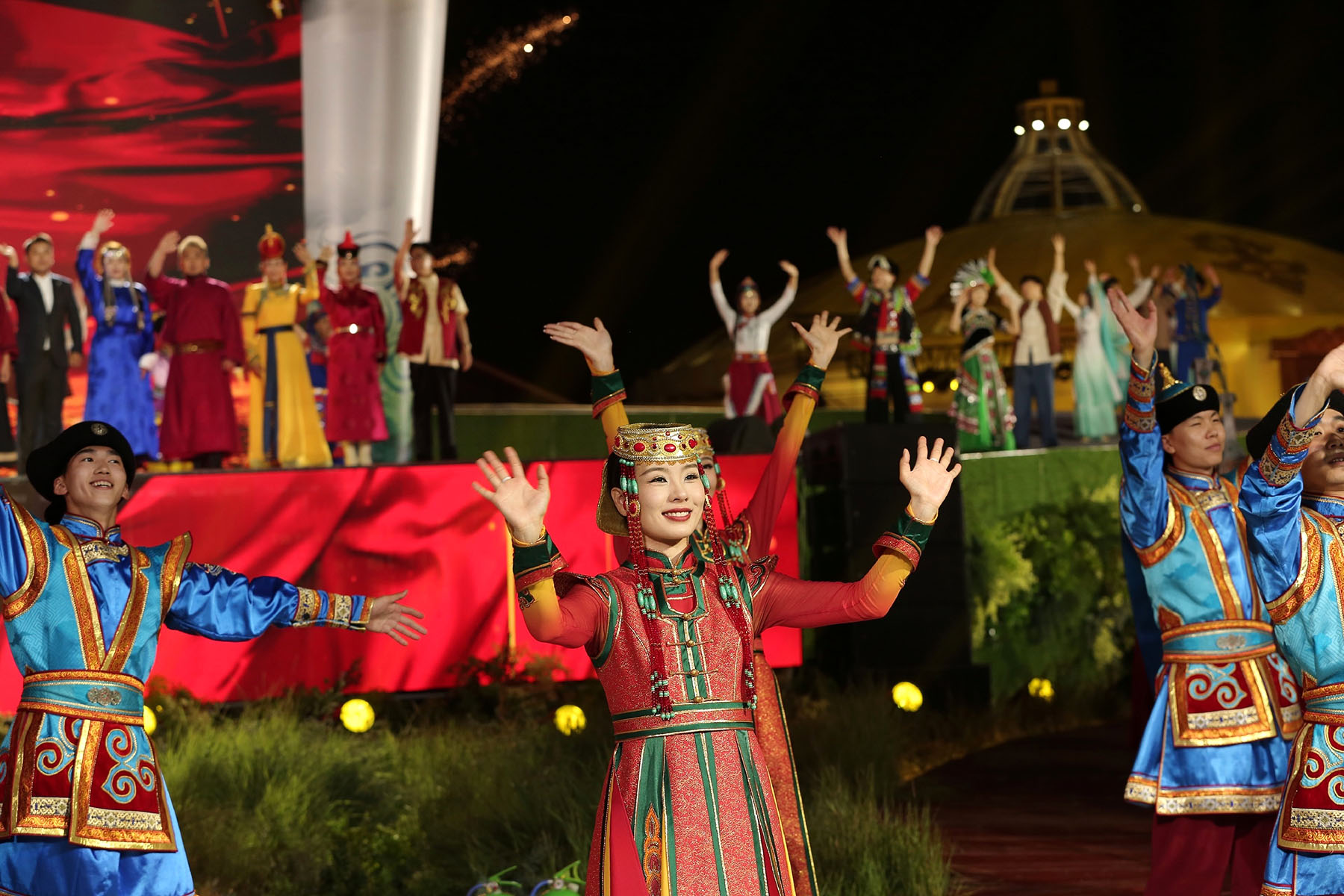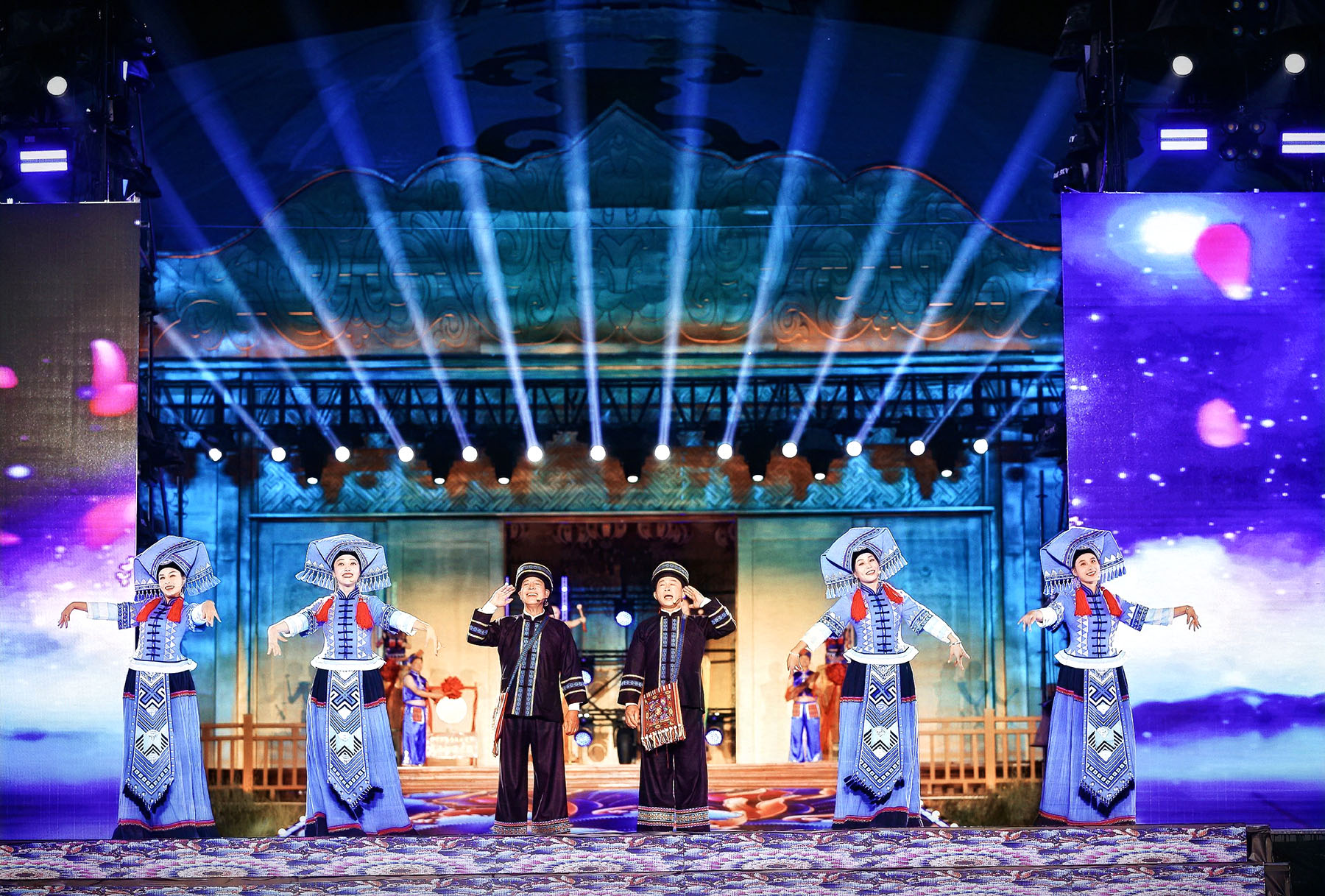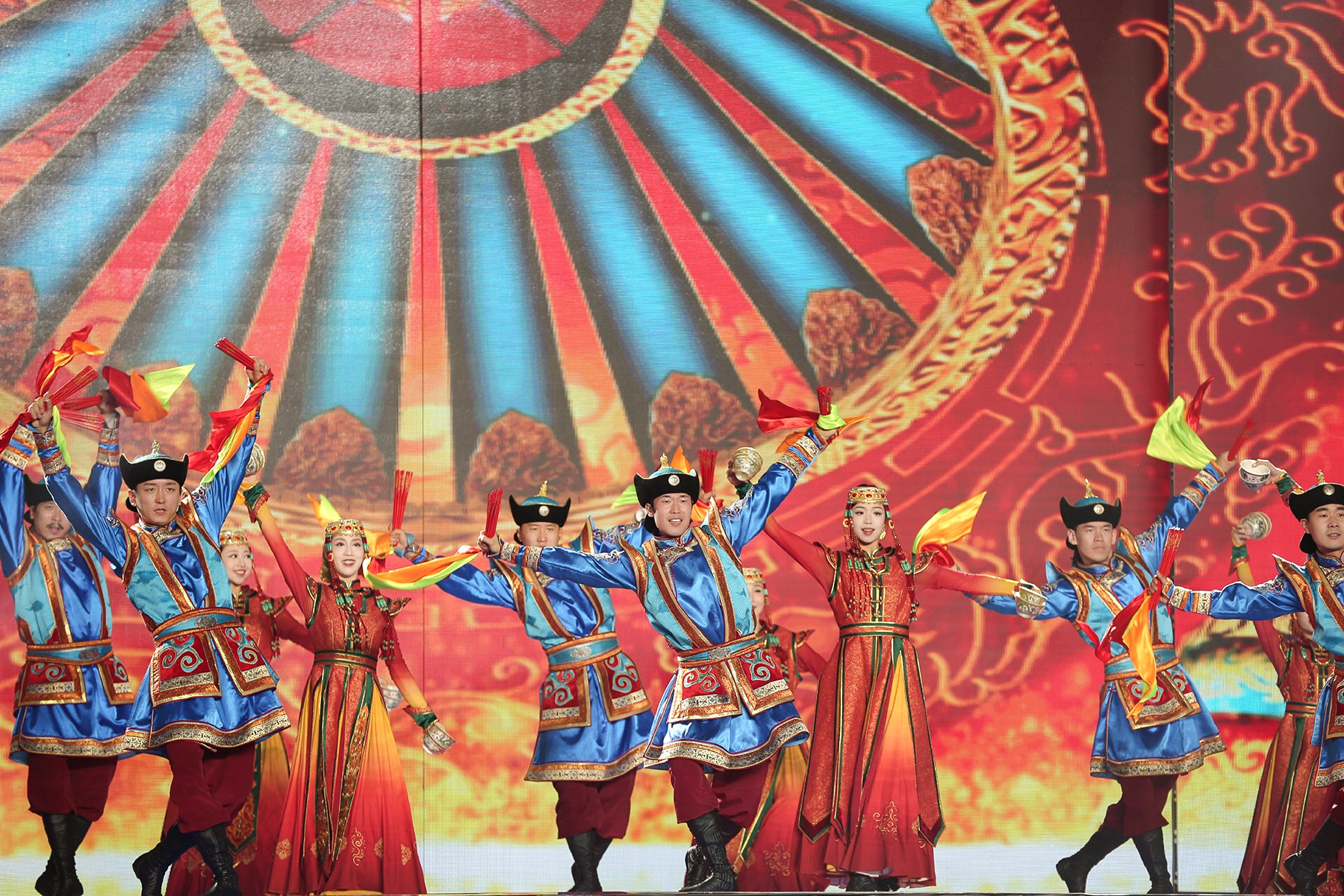Festival brings to life folk music by various ethnic groups to connect the next generations with their history and traditions, Chen Nan reports.

As the sun dips below the distant mountains, the air comes alive with the melodies of traditional instruments. The first notes of the morin khuur — the iconic horse-headed fiddle — rise like a gentle breeze, followed by the deep, resonant voices of Mongolian singers. These timeless songs, passed down through generations, pay homage to the land, the sky, the horses, and the vibrant cycle of life that nomadic herders have lived for centuries.
On Friday, the 2025 China Original Folk Song Festival opened on the Chilechuan Grassland near Hohhot, the capital of the Inner Mongolia autonomous region, transporting audiences into the heart of Mongolian culture.
READ MORE: Folk feast bewitches Beijing audience
Against a backdrop of vast green plains dotted with traditional yurt camps, they experienced the rich heritage of Mongolian herders, and enjoyed lively folk songs and dances performed by young artists in vibrant festival attire. As night fell, the atmosphere morphed into a cross-country journey when singers from across China took the stage and offered a taste of the country's diverse cultures.
The biennial folk song festival, organized by the Ministry of Culture and Tourism, featured 65 groups with nearly 400 performers. The festival spanned from Friday to Sunday and showcased 42 national-level and 23 provincial-level intangible cultural heritage items.

Performers collaborated with local art troupes, touring cities in the Inner Mongolia autonomous region, such as Ulaanqab and Ordos, delighting residents and tourists with performances in public squares, schools, pastoral areas, scenic spots and on streets.
"The festival's location changes with each edition, allowing us to honor the unique beauty and traditions of different regions," says Hu Yan, deputy director of the ministry's Intangible Cultural Heritage Department. The first edition in 2021 was held in Chongqing and the second edition in 2023 took place in three cities in Jiangxi province.
"Folk songs vary greatly nationwide and reflect the diverse traditions, lifestyles, dialects and natural landscapes of the country. By listening to these songs, audiences feel they're journeying across China without having to leave their seats, and they connect with the soundscapes and emotions," Hu says.
Among the standout performances was Shao Li, a group from South China's Guangxi Zhuang autonomous region. The name Shao Li means "beauty" in Mandarin, and it was chosen to reflect the stunning folk traditions of their hometown. The group's leader, Pan Ting, explains that the songs they perform are not just melodies but powerful narratives about their culture and history.

"We grew up listening to our parents and grandparents sing these songs, which not only have beautiful tunes but also tell the stories of our ancestors and their lives," Pan says. The four members of the group — Pan, from the Zhuang ethnic group; Yao Qiyuan, from the Dong ethnic group; Wei Xinlin, from the Bouyei ethnic group; and Liu Haijia, from the Miao ethnic group — joined together 10 years ago as students at Guangxi Arts University.
"At first, we only performed for a university competition. We never imagined we would still be performing together after a decade, traveling far beyond our hometown," says Pan, who now teaches at the Guangxi Vocational College of Performing Arts.
In 2024, the group gained widespread recognition after performing at the CCTV Spring Festival Gala, one of China's most-watched TV programs. Their performance at the 2025 China Original Folk Song Festival featured Ay Hey, a song based on a traditional Guangxi folk song that was also featured on the soundtrack of the popular online game Perfect World.
The group was joined onstage by two veteran singers from Guangxi — Lu Shunhong and Yu Xianzhuan, both masters of liao ge (liao songs), a traditional form of folk music from the Zhuang ethnic group. In the game, Ay Hey is heard when players achieve victory, evoking feelings of joy and pride.
"Changing lifestyles and the rise of modern technology are key reasons why folk songs have declined in popularity. But, despite their simplicity, these songs are deeply emotional," Pan says. "We believe there are ways to bridge the gap between traditional folk songs and contemporary culture, making them relevant to younger generations."

Morin khuur master Chi Bulag, 82, also graced the festival where he performed as a soloist and collaborated with singers to bring Mongolian folk songs to life. He performed at the opening ceremony of the 2008 Beijing Olympics and made an international impact by performing in Japan and the United States. He is credited with training new morin khuur players and popularizing the instrument, and expanding its tonal range.
"I love singing folk songs because they are not just music; they are an integral part of our shared history and identity," Chi Bulag says. "Folk songs help us feel a deep connection to our roots and foster pride in our heritage."
ALSO READ: Folk music culture fuels urban development in Wuxi
Folk songs often narrate everyday struggles, joys, and communal life experiences. According to Li Hongfeng, a researcher at the Chinese National Academy of Arts, these songs create a sense of unity and preserve social ties.
"When we talk about protecting folk songs, we're not just preserving music. We're safeguarding the culture, traditions and values that shape who we are," Li says. "These songs offer profound insights into the past and continue to inspire and connect us across generations."
Contact the writer at chennan@chinadaily.com.cn


